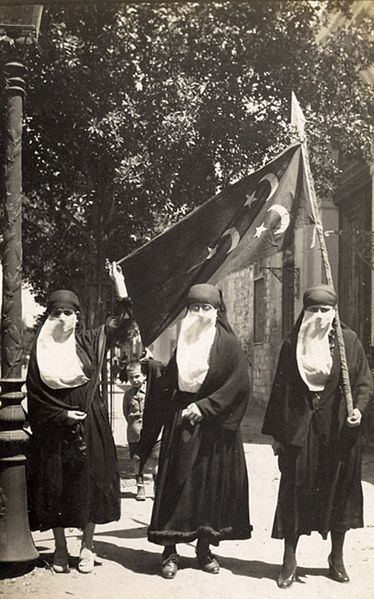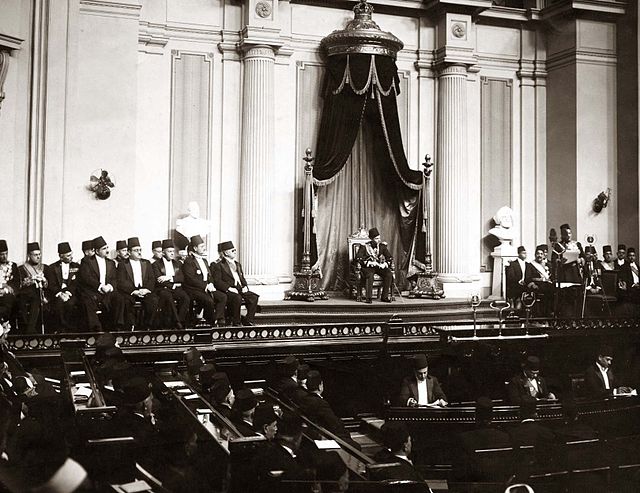According to most scholars the history of modern Egypt dates from the start of the rule of Muhammad Ali in 1805 and his launching of Egypt's modernization project that involved building a new army and suggesting a new map for the country, though the definition of Egypt's modern history has varied in accordance with different definitions of modernity. Some scholars date it as far back as 1516 with the Ottomans' defeat of the Mamlūks in 1516–17.
Female nationalists demonstrating in Cairo, 1919.
Nasser in 1958.
Celebrating the signing of the Camp David Accords: Menachem Begin, Jimmy Carter, Anwar Al Sadat.
A section of present-day Cairo, as seen from the Cairo Tower.
The Egyptian revolution of 1952, also known as the 1952 coup d'état and 23 July Revolution, was a period of profound political, economic, and societal change in Egypt. On 23 July 1952 the revolution began with the toppling of King Farouk in a coup d'état by the Free Officers Movement. This group of army officers was led by Mohamed Naguib and Gamal Abdel Nasser. The Revolution ushered in a wave of revolutionary politics in the Arab World, and contributed to the escalation of decolonisation, and the development of Third World solidarity during the Cold War.
The leaders of the Revolution, Mohamed Naguib (left) and Gamal Abdel Nasser (right) in a Cadillac
King Farouk I of Egypt in Parliament listening to Mustafa el-Nahhas Pasha's speech.
Poster from the Egyptian nationalist Ahmed Hussein for complete independence
Egyptian police fighting in the Battle of Ismalia








